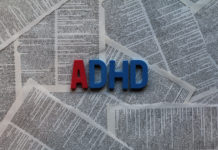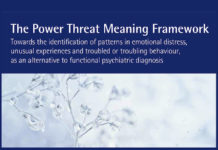DSM-5 Statement by the Critical Psychiatry Network
The Critical Psychiatry Network is concerned with the way the controversy over the publication of DSM-5 is being portrayed in the media and by some academic psychiatrists. The issues raised by the DSM are complex and require careful and studied consideration. There are two aspects in particular that concern us. These relate to the portrayal of the controversy as a guild dispute, and the polarisation of the debate as one of nurture versus nature.
Sera Davidow: “Non-compliance Saved My Life”
Sera Davidow, MIA Blogger and Director of The Western Massachusetts Recovery Learning Community (RLC), discusses her lived experience within the psychiatric system.
United Nations Report Calls for Revolution in Mental Health Care
In a new report, the United Nations Special Rapporteur on the right to health, Dr. Dainius Pūras, calls for a move away from the biomedical model and “excessive use of psychotropic medicines.”
Imagining A Different Future in Mental Health
Robert Whitaker speaks about how the data shows we could have far better outcomes for people diagnosed with mental illness by going to a selective...
Links Between Benefits and Mental Ill-Health Could be Recorded
From Vox Political: In a new proposal in the medical journal The Lancet, Kate Allsopp and Peter Kinderman have called for mental health professionals to record psychosocial...
Moral and Political Implications of the DSM
-A special issue of Public Affairs Quarterly examines "the moral and political implications" of the Diagnostic and Statistical Manual of Mental Disorders.
Neuroscience-based Treatment Program Proposed for Adolescent Depression
A study published in Frontiers in Human Neuroscience proposes a new model for the treatment of adolescents diagnosed with major depressive disorder (MDD).
Robert Whitaker & Allen Frances on Al Jazeera TV: “Redefining Mental Illness”
Robert Whitaker notes on Al Jazeera's "Inside Story" that a helpful diagnostic text must be both reliable and valid, and the DSM is neither...
What Caused the American Child Bipolar Epidemic?
-Psychiatrists analyze why US bipolar diagnoses in children and adolescents increased 40 times over in less than 10 years.
Top Ten Things You May Not Know About the ICD-10
In this piece for Psychology Today, Dr. Jonathan D. Raskin lists 10 facts about the current version of the International Classification of Diseases, which is...
Researchers Question the “Adequacy and Legitimacy” of ADHD Diagnosis
A new article, just published online in the journal Emotional and Behavioural Difficulties, presents research suggesting that the diagnosis of ADHD is philosophically inadequate.
The Lancet Weighs in on DSM-V “Grief-as-Illness.”
In a lead editorial, The Lancet took the position that the proposed revision to the DSM that would modify the exclusion for bereavement "is not...
New Podcast – is it Really Mental Illness?
From the University of Liverpool News: In a new podcast, Dr. Peter Kinderman, the vice-president of the British Psychological Society, argues that emotional distress is...
Study Reveals Inconsistency in ADHD Diagnostic Determinations
Researchers compare differences between research and clinical diagnoses of ADHD and explore the consistency of clinical determinations over time
The Smartphone Psychiatrist
In this piece for The Atlantic, David Dobbs delves into the life of former NIMH director Thomas Insel, his critiques of research within the field of...
DSM-5 Boycott Enters 2nd Phase: A Primer for the NO-DSM Diagnosis Campaign
Yes, the boycott of the DSM-5 continues. I can’t tell you how many fewer DSMs have so far been purchased as a result of the boycott; and conversations I have had with professionals in New York’s public mental health system lead me to believe that the great majority continue to accept the validity of the biomedical model and the centrality of psychoactive medications in the treatment of persons caught up in the public system. Perhaps that’s the most important argument in support of the boycott’s continuation – we have so many more folks to reach.
Psychics Who Hear Voices Could Be on to Something
In this piece for The Atlantic, Joseph Frankel compares and contrasts the voice-hearing experiences of self-described psychics and mediums with the experiences of people diagnosed with...
The Power Threat Meaning Framework One Year On
The team that developed the Power Threat Meaning framework as a diagnostic alternative reflects on the response to the framework after one year.
Diagnosis Dilemma
Not long ago I had a conversation with a psychiatrist. He told me about a diagnostic dilemma he’d run up against at work; When a judge makes an unfunded treatment mandate as part of her judgment, she pressures the doctor to make a “payable” psychiatric diagnosis. If the doctor stretches the truth out of sympathy and provides an inaccurate but payable diagnosis so that his patient can have access to medical care and money to live on, he is committing fraud that can mean heavy fines and incarceration for himself.
All Quiet on the DSM Front
1 Boring Old Man write on the silent treatment echoing from the DSM-5 battlefront.
Article →
Does DSM-5 Matter? Yes; but not for Psychiatrists
What makes the DSM so pernicious is that it is a cultural document whose influence transcends not only psychiatric practice but also the Western civilization from which it originates. Each revision of the DSM rescripts and reimagines how we make sense of our experiences, reinterprets what thoughts, feelings and behaviors are socially sanctioned, and ultimately what it means to be human.
Evidence That Sadness When Bereaved is Not Illness
While the DSM-IV recognizes that depressive symptoms are sometimes normal in bereaved individuals, this "Bereavement Exclusion" is targeted for elimination from the DSM-V. However...
Laura Delano, David Oaks, Ted Chabasinski and Adina Lambert in Philadelpha
Laura Delano at Occupy the American Psychiatric Association, May 5, 2012, in Philadelphia
David Oaks at Occupy the American Psychiatric Association, May 5, 2012
Ted Chabasinski...
“The D.S.M. and the Nature of Disease”
Gary Greenburg writes in the New Yorker that "The D.S.M. has enormous impact on the public health. It determines which conditions insurers will cover,...
Difference is Not Disease: Scientific Integrity, Human Diversity, and the Potentially Bleak Future of...
There has been a lot of talk lately about neuroscience and the future of the medical model of "mental illness." It was made clear, in NIMH director Thomas Insel’s statement, that the DSM is a system of identification and classification of what are deemed disorders within our human experience. This isn’t exactly news to the vast majority of people who have spent even a little bit of time thinking about whether or not psychiatric diagnosis makes sense.




















